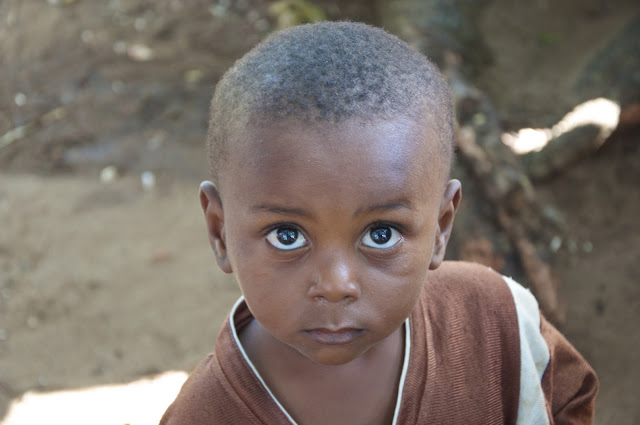During the week we spent at Muhaka, I noticed that I still wasn't 100% well, and by the fifth day, I was practically feeling like I did before the camp. It may have been the night out that threw me over the edge, or being exhausted by the work we where doing, or the fact that I was diagnosed wrong again, but the next day I was back in hospital and on a drip. Took three days in hospital, but i felt like a new man, and I was off to the Mangrove Camp (Makongeni). I was 2 days late for it, but just so glad to be better. Time to make the most of the one and a half months left.

 |
| The first project I was introduced to when I got there. A 'Jigger' is small insect that burrows into on your hands and feet, eating the flesh in and around it and because majority of the people, mostly children, cannot afford shoes, it is a big problem. To get the jigger out, you have to clean the feet and/or hands and then soak them in iodine solution for 10 minutes and then let it dry. This kills off the insect and cleans the wound, but it has to be done more than once to ensure it has worked. Again, the cost of this is too much for majority of the locals to attain themselves and so Camp Kenya provides the treatment for the local community and is also trying to prevent this by investing in shoes for the children of the local school. |
 |
| Boy being treated. He had such a severe case that they had to dig out parasite with tweezers from this hands. It was very hard to watch as the child was in so much pain, tears streaming down his face, screaming. |
 |
| Relieved it was over |
 |
| To entertain ourselves in the night, we played the wheat-a-bix game, where you get a cereal box, and without using your hands, you had to pick it up with your mouth. Every-time you are successful, you cut an inch off the box. Its surprisingly hard! |
 |
| Our accommodation, the nicest during the two months we were there. |
 |
| The Mangrove swamp. When the tide came in, this was all filled with water. The boardwalk was something we were helping to build. The community was going to open a restaurant at the end of it once it was finished, cooking and selling fresh fish from the local ponds. |
 |
| One of the pond we were digging out |
 |
| Pure Bliss |
 |
| Sunset. The end of another day in paradise. |
 |
| A 2 week old baby in the local community. We pooled some money together and bought the family a large bag of rice |
 |
| The Local Health Clinic (one of the nicer clinics we visited) |































































